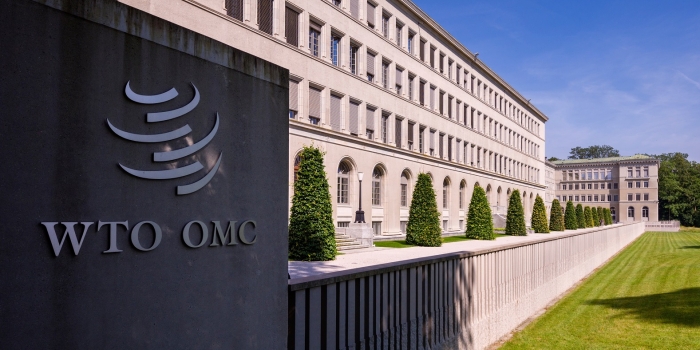São Paulo – Edited by three Brazilian scholars, book “The WTO Dispute Settlement Mechanism – A Developing Country Perspective” was launched last May by Swiss publishing house Springer, but the subject has gained prominence due to the World Trade Organization Appelate Body’ judge blockage.

The Appellate Body will have just one judge, but a minimum of three judges is needed for it to rule. The United States has held substitute appointments and crystallized defects for 2020. In an interview with the press, WTO director-general Roberto Azêvedo said that the blockage won’t keep the conflict settlement system to work, as it may be done through other mechanisms, such as consultations, panels and referrals. The Appellate Body works as a kind of final court of appeals.
The book brings a perspective on the WTO conflict resolution mechanism called Dispute Settlement System with its legal, political and economic points. One of the editors is Brazilian scholar Luciana M. de Oliveira Sá Pires, who lives in the United Arab Emirates. She is international trade legal consultant and Ph.D in international law from the Law School of University of São Paulo (USP).
The book was planned in 2015 on the occasion of the 20th anniversary of the World Trade Organization and brings together articles by 33 authors, most of them Brazilian diplomats and authorities on international trade. Other editors were Alberto do Amaral Júnior, associate professor at the International Law Department of the Law School of USP, and Cristiane Lucena Carneiro, assistant professor at the International Relations Institutes of USP.
Luciana recalls that she was a student in the Ph.D program of USP under Amaral and had been admitted as a visiting scholar at the Graduate Institute of Geneva, when they decided to organize the book. “Professor Alberto and I started the work and, one year later, we invited professor Cristiane Lucena to be part of the project and offer her perspective and expertise as a political scientist,” Luciana emailed ANBA. They invited authors to do a systematic analysis of the main aspects of the Dispute Settlement System.
The work has 24 chapters divided into three sections. One of them deals precisely with processual issues and the consequences of the Appellate Body rulings concerning the WTO jurisprudence. Luciana points out that the Appellate Body has seen its numbers reduced since 2017. “The current reality deeply impacts the system workings and is especially worrying for developing countries,” she wrote.

The book is prefaced by Roberto Azêvedo, who gives a synthetized view on the relevance of the WTO dispute settlement mechanism in promoting a strong, rule-based structure for global trade relations. Jacqueline Spolador Lopes, who has a master’s in international law from the Law School of USP, wrote a chapter saying that the developing countries can use a rule-based dispute settlement system as leverage in negotiations since they face shortfalls in disputes due to a lack of economic power.
Diplomat Celso de Tarso Pereira, minister counselor at Brazil’s embassy in Beijing, China, analyzed Brazil’s involvement in the Dispute Settlement System. Doctor in law from the Federal University of Santa Catarina, Welber Barral, and the founder of the Woman Inside Trade, Renata Vargas Amaral, look into how developing countries can best settle disputes, wheter it’s legally – which is more expensive – or politically. These are just some of the covered topics.
The studies point out that the WTO dispute settlement mechanism is efficient but there’s room and willingness for improvement, especially from the developing countries. According to the book, the WTO system is a successful model among the international dispute settlement systems. “The authors share a developing country perspective on the WTO,” Luciana explains, pointing out that most of them were educated in developing countries and earned their spaces in the academy and the private and public sector after studying in post-grad programs in prestigious institutions focused in WTO law across Europe and the US.
The book can be bought through the websites of Springer, Amazon and the WTO bookshop in Geneva as well as in international law bookstores and from the publishing house during events. A book launch will take place in Abu Dhabi in early 2020. Luciana moved to the UAE with her husband, who works there as well as in Brazil and Europe. Last August, she finished a term as visiting scholar at the New York University Abu Dhabi.
Translated by Guilherme Miranda




